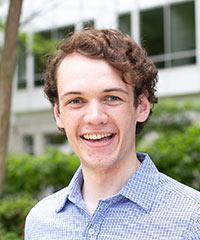You are here
Nicholas Stubblefield
Boston College
AIP Mather Policy Intern
National Institute of Standards and Technology (NIST)
Final presentation
Opportunities to pass transformative policies are few and far between. Where reality has a preferred inertia towards the status quo, any chance for impactful change requires a specifically tuned, responsive political climate. John Kingdon’s Multiple Streams Approach seeks to explain the necessary conditions that must exist to open a policy window and incite government action. Kindgdon’s model posits that agenda setting (that is, determining what deserves national attention and legislative work) depends on three largely interdependent variables (or streams): problems, policies, and politics. It is only when these streams converge can policymakers achieve significant disruption to the status quo.
This presentation employs the Multiple Streams Approach to the advanced manufacturing policy arena. For the past several decades, the United States has witnessed a decline in its manufacturing productivity and capabilities while countries like Germany and China have successfully coordinated national policies to become global leaders in the sector. By applying Kingdon’s framework, it is the intent of the presentation to explain why little substantive progress has been made relative to this nation’s international competitors and identify the conditions that must be present to pass effective policy.
A career in physics was not my first aspiration, but it has been my longest. Maybe an intense curiosity drove me towards it, or perhaps it was a bias for large, elaborate projects of Faustian proportions. Regardless of the source, physics, from the everyday to the wildly whimsical, has had me hooked since the sweet and tender age of 11. Then late high school brought the pure political frenzy and unadulterated excitement of an election season. I was quickly swept up in a wave of civic engagement among the tumultuous seas of southeastern Idaho politics. Once the tide settled, I had the bug for government, but would I have to choose between these passions as I set off for college? Of course not! I am now a rising senior at Boston College with a double major in physics and political science. I have enjoyed jobs as diverse as giving tours of retired nuclear reactors to conducting research in a topological insulator laboratory, but it is finally my opportunity this summer with AIP’s Mather internship to bring my two interests together in an arena capable of carrying out great public change.
And how is it I get outside of the hustle? Beyond the no doubt riveting assignments and demands of my physics courses, I take great delight in cooking and reading. I am also an avid consumer of film and always have an itch to dance. This summer in D.C. will be a groovy one.

